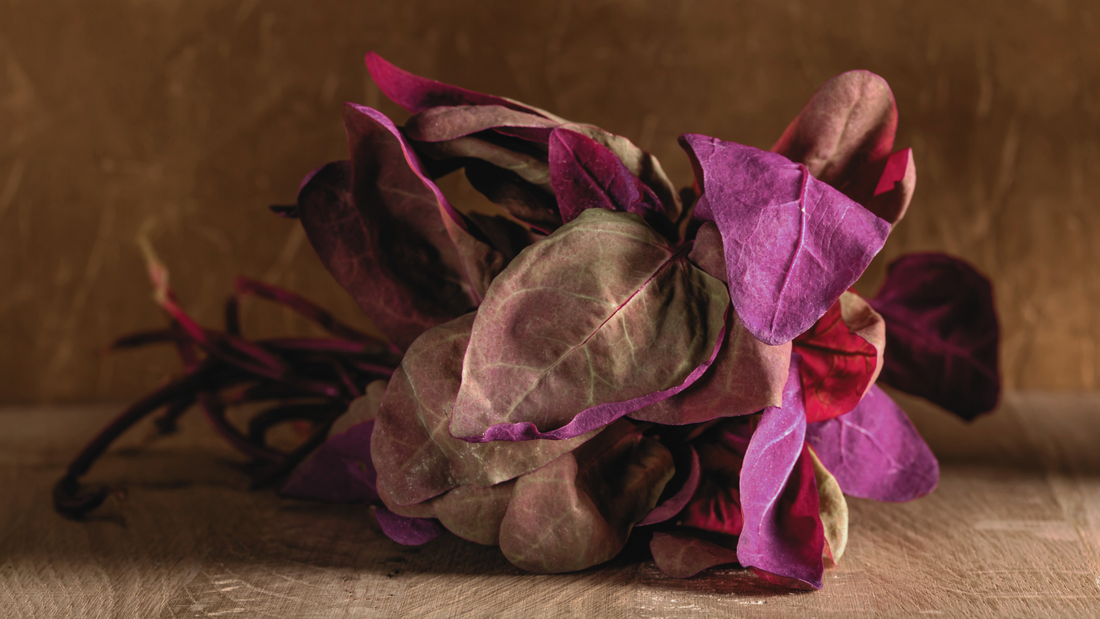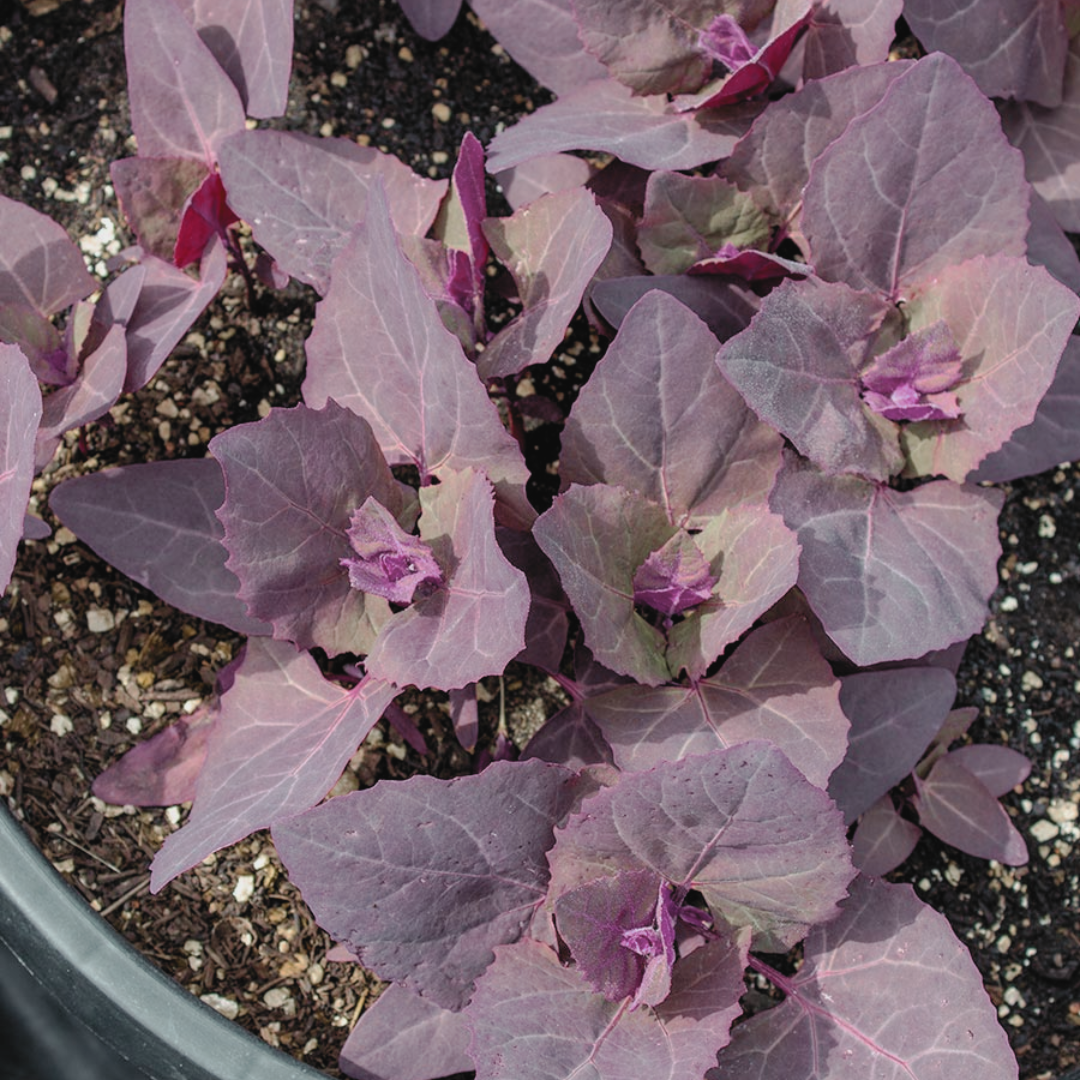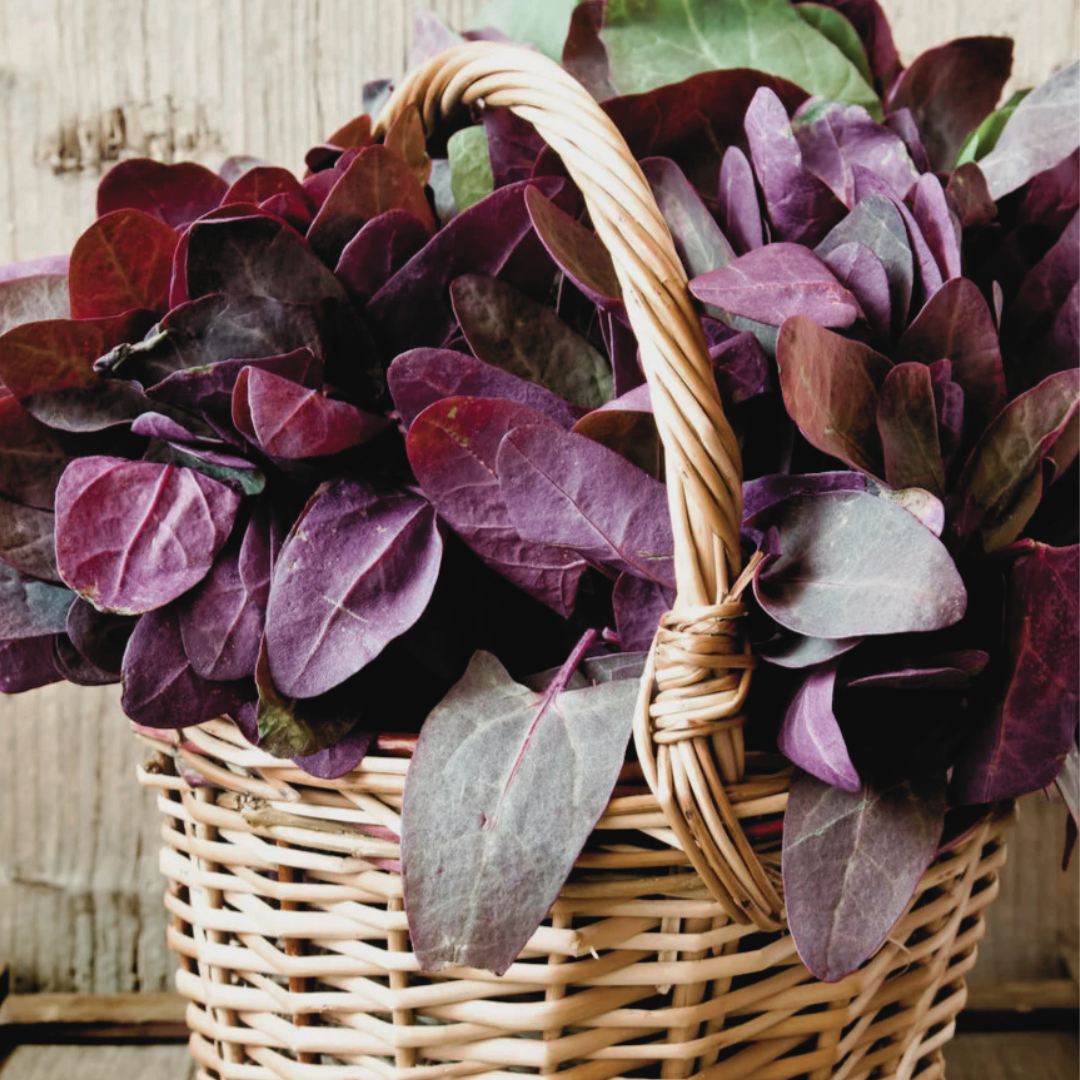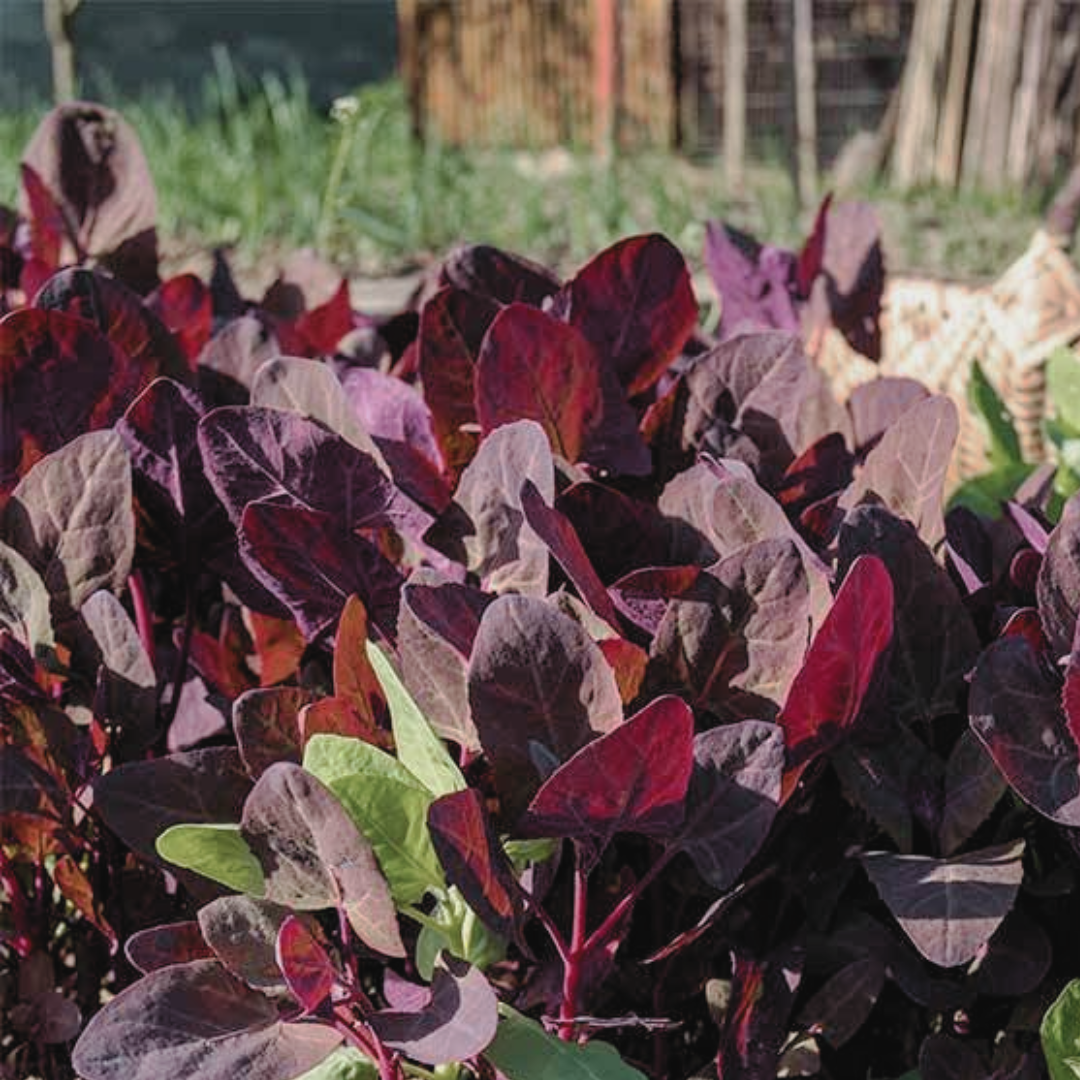


Roots of Resilience: Tracing the Origins of Red Orach
This amazing auburn Amaranth, believed to have originated in Eastern Europe and Siberia, is one of the oldest cultivated plants known. Cultivation of 'Red' Orach spread throughout Europe by the 11th century.

Thriving in Heat: The Advantage of Red Orach Over Spinach
The vibrant vermillion stems of the 'Red' Orach make it ideal for vegetable and ornamental gardens alike. A cousin to spinach, 'Red' Orach boasts a major advantage: heat tolerance. Unlike spinach, which bolts (goes to seed) in hot weather, 'Red' Orach thrives in the early spring and continues to grow well into summer. Bursting with vitamins, minerals, and anthocyanin, this member of the Amaranthaceae family can be eaten raw, sauteed, or blended into a smoothie. 'Red' Orach has a mild chard-like flavor with hints of salt and nuts. When cooked, the flavor develops into a mineral flavor with a hint of fennel.

A Quick Look
- Sun: Part Sun (4 - 6 Hours)
- Soil: Orach prefers temperatures between 50 and 65°, though it is frost hardy and can tolerate warmer temperatures without bolting.
- Days to Harvest: 40 - 50 Days
- Harvest: Harvest young leaves from the outer layers in 'cut and come again' style or thin the plants when they're 4 - 6" tall and eat the thinnings.
- Mature Size: 4 - 6' tall with a 12 - 18" spread
See for yourself why 'Red' Orach has been consumed by humans for 4,000 years. Add some color to your vegetable garden this Spring and order this Orach!
-

Available Plants
Our plants are grown on site and offered when ready for your...
-

Hand-Packaged Seeds
Grow a little piece of Nevermore Nursery wherever you are. Our hand-packaged...
-

Gifts for Gardeners
Discover gifts made for gardeners, from seed collections and plant-themed decor to...



